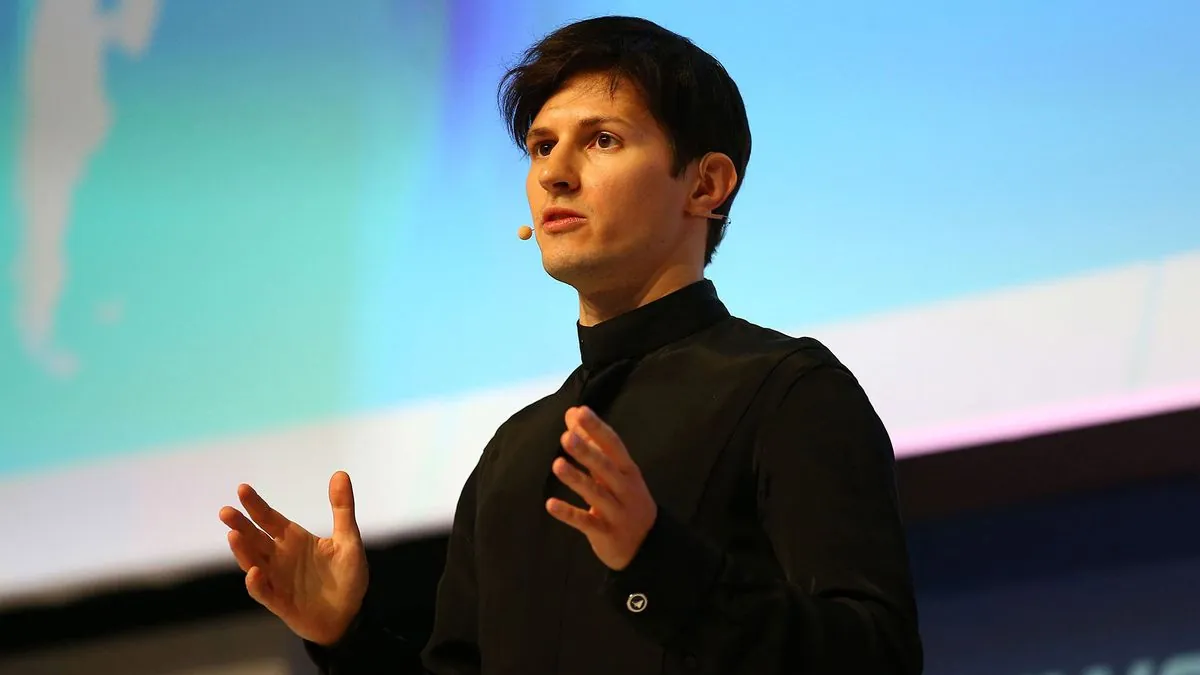Telegram CEO Durov Responds to Paris Arrest, Pledges Platform Improvements
Pavel Durov, Telegram's CEO, addresses his recent arrest in Paris, calling charges "misguided." He promises to enhance content moderation while maintaining user privacy, sparking debate on messaging app regulation.

Pavel Durov, the 39-year-old CEO of Telegram, has broken his silence following his arrest in Paris last month. The Russian-born entrepreneur, often dubbed "Russia's Mark Zuckerberg," faces charges related to the publication of extremist and illegal content on the popular messaging platform.
Durov, who founded Telegram in 2013 after leaving Russia and selling his stake in VKontakte (now VK), described the arrest as "surprising" and the charges as "misguided." The French authorities accused Telegram of failing to curb illegal content, including child pornography, and not complying with legal requests for information related to criminal activities on the app.
"Using laws from the pre-smartphone era to charge a CEO with crimes committed by third parties on the platform he manages is a misguided approach. Building technology is hard enough as it is. No innovator will ever build new tools if they know they can be personally held responsible for potential abuse of those tools."
The arrest has ignited a debate on the balance between government control and user privacy in encrypted messaging apps. This incident comes six years after Russia's unsuccessful attempt to ban Telegram in 2018, highlighting the ongoing challenges faced by such platforms globally.
Durov, who holds multiple passports including those of France and the UAE, argued that CEOs should not be held responsible for platform misuse. However, he acknowledged the need for improved content moderation on Telegram, which has faced criticism for being used by extremist groups.
"We take down millions of harmful posts and channels every day," Durov stated, countering claims that Telegram is an "anarchic paradise." He promised to share details soon on significant improvements in this regard, addressing what he called Telegram's "growing pains."
The Telegram founder's arrest is part of a broader trend of national authorities clamping down on internet platforms. Last week, a Brazilian Supreme Court judge suspended X (formerly Twitter) for defying a court order, further illustrating the increasing scrutiny faced by social media and messaging apps.
Durov emphasized Telegram's commitment to user privacy, citing past instances where the company resisted government demands. In 2018, Telegram refused to hand over "encryption keys" to Russian authorities, resulting in a temporary ban. Similarly, the platform left Iran after being asked to block accounts of protesters.
As Telegram continues to grow, reaching 500 million active users in January 2021, the challenge of balancing privacy and security becomes more complex. Durov acknowledged this difficulty, stating, "Establishing the right balance between privacy and security is not easy. You have to reconcile privacy laws with law enforcement requirements, and local laws with EU laws."
The ongoing situation raises important questions about the future of encrypted messaging apps and the potential chilling effect such prosecutions may have on free speech and technological innovation. As the debate unfolds, the tech community and policymakers will be closely watching how Telegram navigates these challenges while maintaining its commitment to user privacy and security.


































